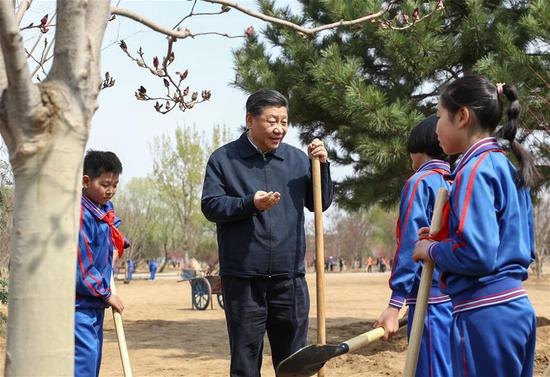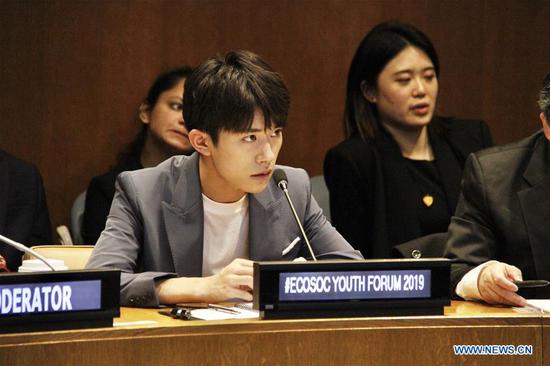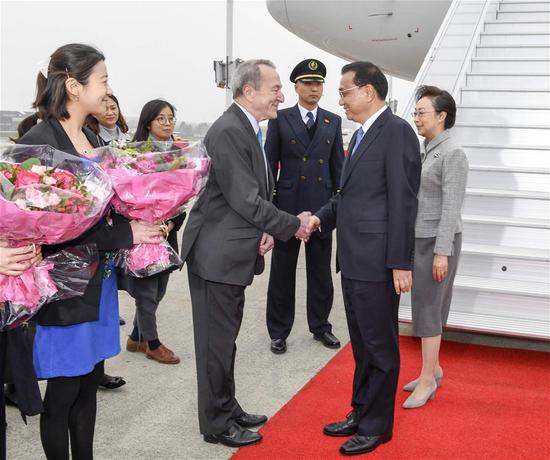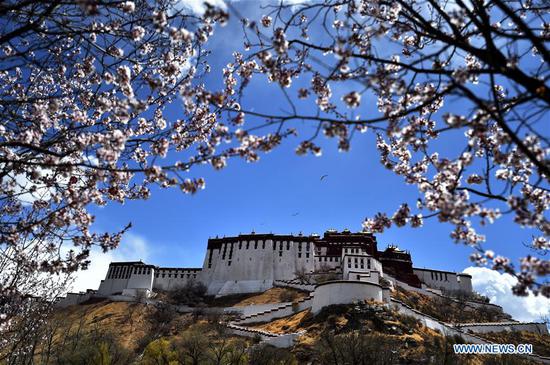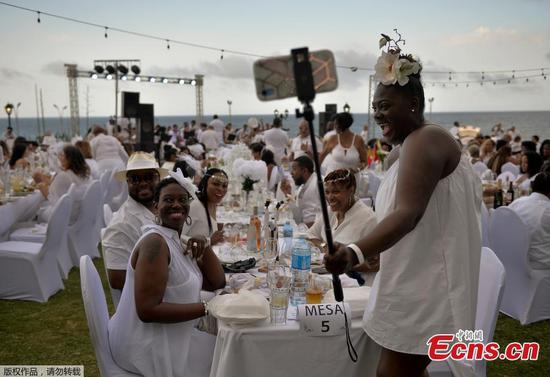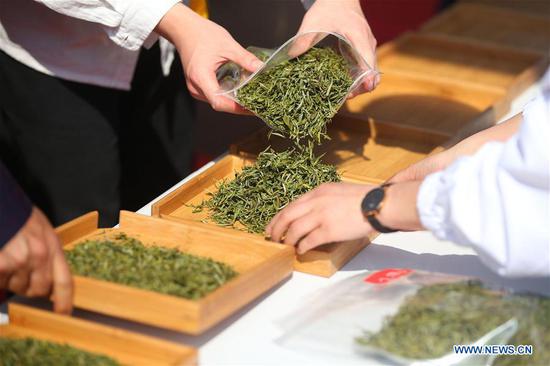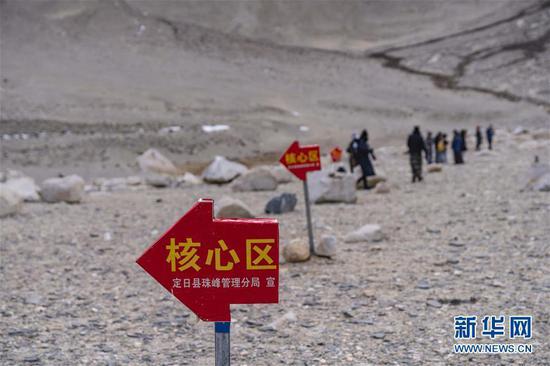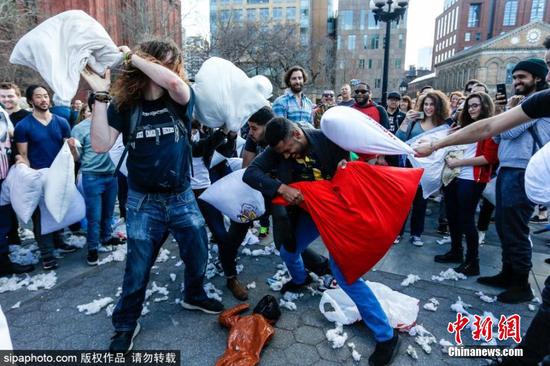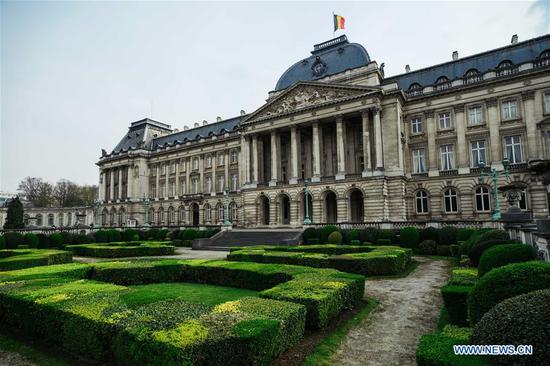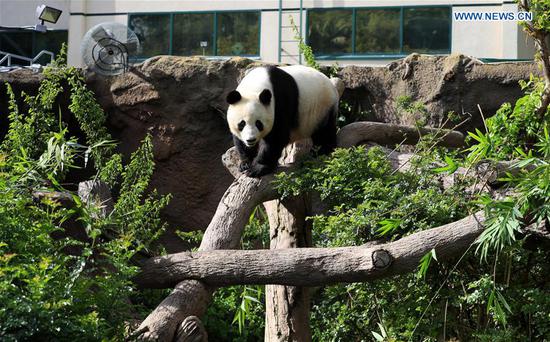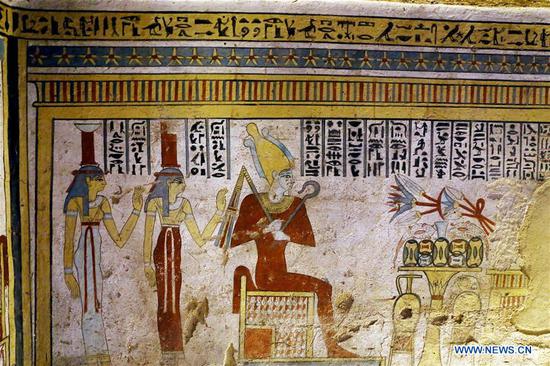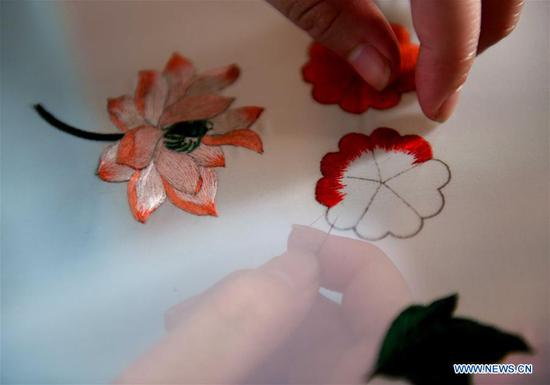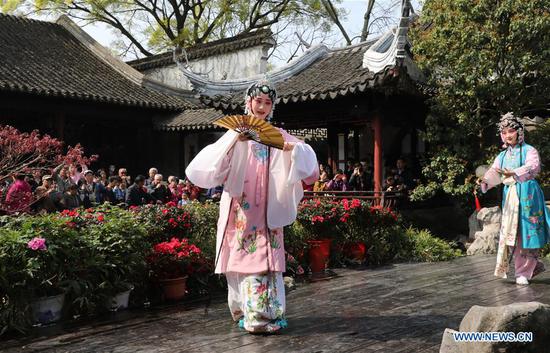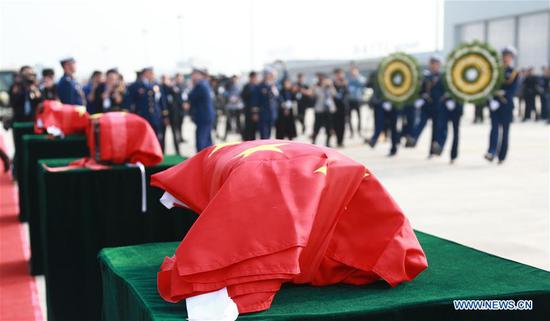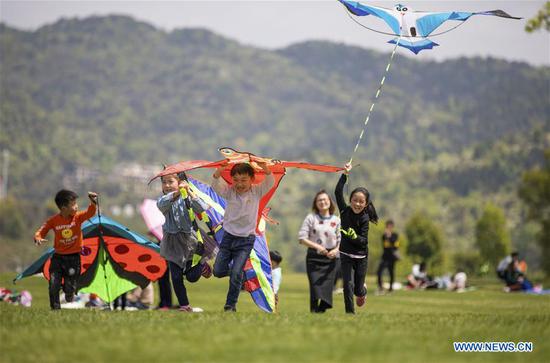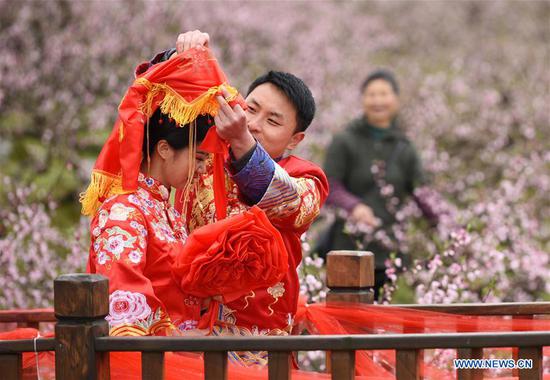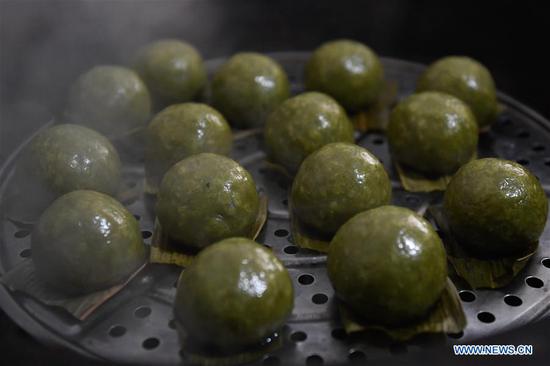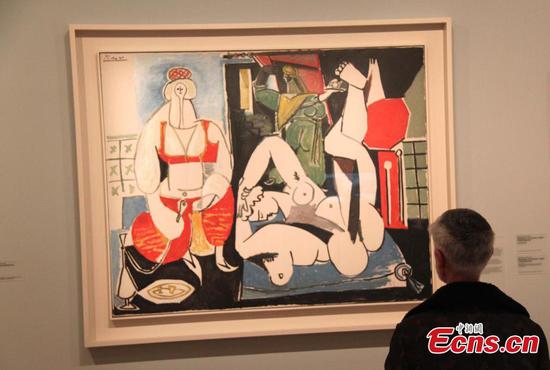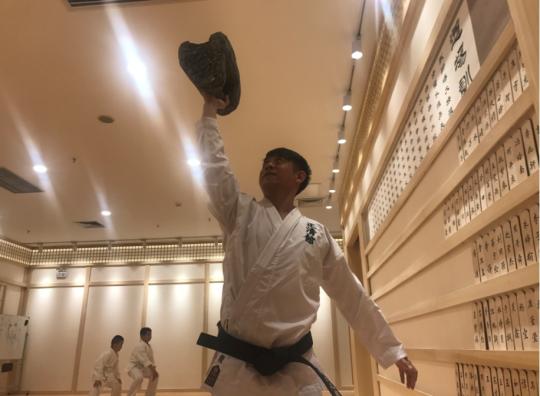
Master Zheng Wenlong in his new studio with one of the Ming Dynasty bricks which was used by his ancestors in training of martial arts. (Photo provided to chinadaily.com.cn)
Zheng Qing Guanis a martial arts studio that for decades could barely be found in a discreet basement of the public library in the Western Gate of Beijing. The special thing about the Zheng Qing school is that it does not limit its courses to only Chinese martial arts, but includes karate alongside classics such as tai chi, wushu, hsing yi, and Bruce Lee's own style jeet kune do. The first time I visited Zheng Qing Guan, I had two impressions.
The first was three photographs on the wall over a statue of the warrior protector Guan Gong, who is a patron of the martial arts. The first photograph was Huo Yuanjia, the great kung fu master who defeated one foreign boxer after another in tournaments held in Shanghai during the late Qing Dynasty and early Republican period. The second photograph was Bruce Lee who over half a century later brought kung fu to the West, through the big screen. The third photograph was Yip Man, the teacher of Bruce Lee, a legend in his own right. These three photographs struck a nerve in my consciousness, as they represented the spirit of Chinese martial arts, spreading out to the rest of the world.
The second thing that deeply impressed me was Master Zheng Wenlong who opened the martial arts studio 20 years ago, and has been the head teacher of multiple martial arts styles over these years. But when I first met him, he was not teaching a class, but sitting on the floor in the backroom of the studio, a room surrounded by every imaginable martial arts sword, with elegant calligraphy on the wall, drinking tea and playing the most esoteric of all Chinese instruments, the gu qin.
The essence of these impressions has never gone away, as the Chinese martial arts are not about fighting, but about cultivating a spirit. Through martial arts practice, one can understand the way of tea, calligraphy, and the essence of a musical instrument such as gu qin.
Zheng Qing Guanmeans the School of Righteousness and Clarity, two words that capture the essence and foundations of Chinese martial arts. "In ancient times, the emperor needed to have the knowledge of swordsmanship, calligraphy and all aspects of Chinese culture in order to lead," explained Master Zheng. "Some of the biggest challenges can be won without fighting if one understands martial arts. It is not only about 'martial,' it is about 'art,' the art of life and the art of the mind."
Zheng Qing Guanopened in 1999 to teach Korean taekwondo, which was rapidly gaining popularity in Beijing during the years running up to the 2008 Olympics, mainly because it was an Olympic sport. However, in the years following the Olympics, taekwondo lost its appeal in Beijing, and over time, Zheng Qing Guan evolved to embrace a spectrum of Chinese martial arts, adding Okinawan karate. As one of the chief instructors, Khloe Cui has said, "Karate came from China, one day it must return to China." Historically, the Shaolin defense system was brought to Okinawa by a Chinese ambassador in ancient times when Okinawa was a kingdom in its own right.
All of the teachers at Zheng Qing Guan uphold a very strong view that regardless of where the martial arts came from, Shaolin remains the source of the martial arts spirit. Moreover, regardless of the style, all martial arts are part of interconnected systems aimed at achieving skill sets for focus, concentration and control of the body through the mind over matter, as well as a value system of respect, harmony and non-violence. The first move in every martial arts form is actually defensive. Self-defense is only a response to extreme threatening situations. Avoiding those situations is more important, and part of martial arts training.
Establishing a private martial arts studio in Beijing was not an easy task, fraught with its own challenges. "It was very difficult to find a business model where we could offer affordable martial arts classes to a wide number of students in China, while still being able to pay our instructors and keep up the overhead of our studio," said Zheng, reflecting back on the years building up his school. "A normal businessman might have shut this thing down a long time ago. It was the constant encouragement of my close friends in the martial arts circles, and our determination to find a pathway and pricing system that would allow the classes to flourish and enable us to promote Chinese martial arts. The spirit of encouragement was more valuable than money." In many ways, this is the spirit of martial arts.
Master Zheng Wenlong, personally teaches karate, hsing yi, and tai chi, in addition to the nearly dozen instructors working in the now expanded Zheng Qing Guan. Zheng began his career as a wu shu enthusiast. His passion came from a family lineage of martial arts practitioners, unbroken since the Ming Dynasty. In one corner of the practice room at Zheng Qing Guanare Ming Dynasty bricks and carved stones with handles. These date back from the Ming Dynasty and have them past through his family, generation after generation, all of whom have been martial arts practitioners. The stones and bricks are essentially for weight-lifting, long before we had modern gyms.
From its humble roots in the western part of Beijing,Zheng Qing Guanon March 31 opened two large modern studios, one on the Northeast, and the other on the southern side of Beijing at an upscale shopping mall at Xuan Wu Men. The sudden burst of growth in students is testimony to a revived interest in not only the traditional Chinese martial arts, but the core principles of Chinese culture that have taken their rightful place in the mindsets of people in China today. These values are also taking root in the West where martial arts studios are popular in both Europe and North America where classic values have already eroded and people are seeking a replacement. As Zheng Wenlong said with a hint of destiny to his voice, "I dedicated myself to teaching the next generation martial arts, not for the purpose of fighting, but for the purpose of cultivating the spirit of never accepting defeat, regardless of what they do, or what happens in life."

The author and Zheng Wenlong at the opening ceremony of the new Zheng Qing Guan studio. (Photo provided to chinadaily.com.cn)
Laurence Brahm is the founding director of the Himalayan Consensus and a senior international fellow at the Center for China and Globalization.











